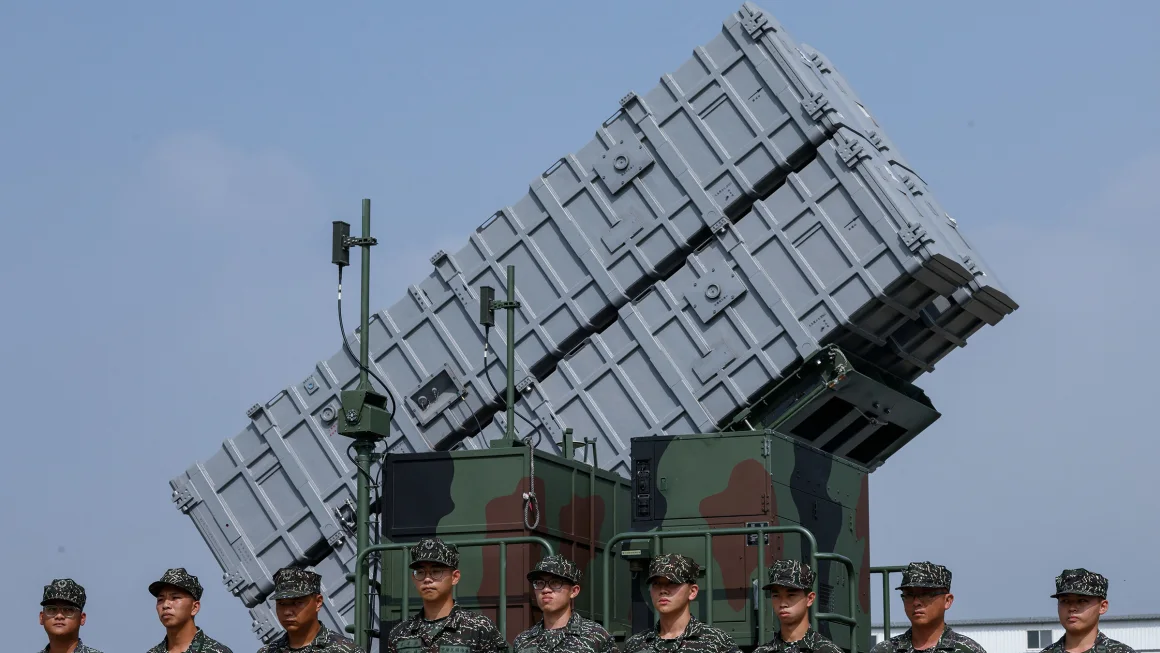Taiwan’s Defense Minister, Wellington Koo, has issued a strong warning following China’s recent military drills. Koo emphasized that any actual blockade of Taiwan would be considered an act of war with severe global consequences. His statements come after Chinese war games simulated scenarios of blockading Taiwan’s key ports and regions, heightening tensions between the two governments.
Koo stressed, “If you want to carry out a so-called blockade, which according to international law is to prohibit all aircraft and ships entering the area, then, according to United Nations resolutions, it is regarded as a form of war.”
China’s Simulated Blockades and Taiwan’s Rejection
China, which claims Taiwan as its territory, has been increasing military activities near the island for the past five years. Recent drills called “Joint Sword-2024B,” simulated maritime and ground assaults, testing blockade scenarios. Taiwan rejects China’s sovereignty claims and calls such actions provocations.
Koo underscored the distinction between military drills and a genuine blockade, saying, “I want to stress that drills and exercises are different from a blockade, as would be the impact on the international community.”
Impact on International Trade and Global Security
The Taiwan Strait is a vital shipping route through which one-fifth of global freight moves. Koo warned that a blockade would disrupt global trade and invite international intervention. “The international community could not sit by and just watch,” he added, emphasizing the global implications of any Taiwan Strait conflict.
China has not ruled out using force to bring Taiwan under its control. However, the ongoing military exercises are also a clear reminder of Beijing’s strategic intentions, raising concerns in Taiwan and allied nations.
Chinese Aircraft Carrier Movement Near Taiwan
Amidst these developments, Taiwan’s Defense Ministry reported that China’s aircraft carrier, Liaoning, passed through the Taiwan Strait. The carrier group was monitored as it traveled north, near Taiwan-controlled Pratas Islands. Taiwan’s forces kept a close watch as the fleet crossed into waters near the island.
Koo explained that the Liaoning remained west of the strait’s median line, an unofficial boundary that China refuses to acknowledge. Chinese war games last week saw the Liaoning launching aircraft off its deck near Taiwan’s southeast coast.
The carrier’s movements align with China’s pattern of flexing military strength in the region. Last month, Japan also reported that the Liaoning had entered its contiguous waters for the first time, further indicating Beijing’s assertiveness in the Asia-Pacific.
International Response and Taiwan’s Preparedness
The Taiwan Strait remains a geopolitical flashpoint. The United States and its allies frequently send naval ships through the strait to assert freedom of navigation. China, however, considers these operations provocative.
Taiwan is also concerned about the growing role of China’s coast guard in military operations. There is heightened fear that Chinese authorities may attempt to board Taiwanese civilian vessels under the guise of inspections. Taiwan’s coast guard stated in a report to parliament, “If that happened, its ships would respond under the principle of ‘neither provoking nor backing down’ and stop such acts with all its strength.”
Taiwan’s Call for Vigilance
As tensions escalate, Taiwan remains vigilant, monitoring Chinese military activity and preparing to defend its sovereignty. The warning from Defense Minister Koo highlights the seriousness of the situation, making it clear that a blockade would be an intolerable act of aggression. Taiwan urges the international community to stay engaged and uphold stability in the region.
The Taiwan Strait is not just a contested area between two governments; it represents a critical juncture in global trade and security. Whether the international community can deter further escalation remains to be seen, but Taiwan is resolved to protect its territory.







